By Virginia Hughes
Illustration by John Kachik
“During the war a helicopter arrived on a remote island in the Pacific carrying a doctor who was needed urgently for emergency surgery. The doctor was led to a small hut which staff had readied for the operation. Once scrubbed, he approached the makeshift operating table and surveyed his patient. Ready to begin, he reached for an instrument, but the nurse shook her head and handed him a different implement. ‘Oh . . . don’t tell me,’ he sighed, ‘a Hopkins nurse.’”
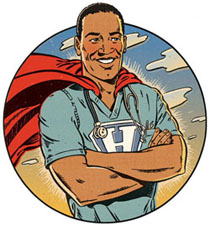
This story, first reproduced in a 1940s pamphlet promoting the Johns Hopkins Hospital School of Nursing, has become legendary for several generations of Hopkins nurses.
“I joke about being an uppity nurse,” says Marian Grant, who earned her baccalaureate degree in nursing at the school in 2000 and her master’s degree as an acute care nurse practitioner in 2005. “Even as a new nurse, in certain situations, I thought, ‘I need to speak up.’ I would challenge doctors, challenge administration people, if necessary, on behalf of my patients.”
Grant, who is today the program coordinator of the Bayview Medical Center’s Palliative Care Consult Service at Johns Hopkins, honed her assertiveness in the 20 years she worked as a marketing executive for Procter and Gamble. But she left the advertising world in 1998. “I started doing volunteer work at an AIDS hospice, and as time went by I thought I’d much rather do this kind of work instead of selling lipstick,” she says. Grant turned to the Johns Hopkins University School of Nursing, she says, because, “It was the brand. It’s like they say: You can go anywhere in the world and say ‘Hopkins’ and people know what you’re talking about.”
Grant’s branding experience came in handy in 2002, a couple of years after she earned her first nursing degree. “Martha Hill had been named Dean at the School of Nursing,” Grant recalls, “and was interested in increasing the awareness of Hopkins nursing. I volunteered to do some pro bono marketing consulting.”

After interviewing Hopkins nurses, conducting polls, and reviewing historical records, she says, “we concluded that a Hopkins nurse was a person who was very much into clinical excellence but also had a high component of leadership, a global perspective, and strong advocacy skills.” From their data, Grant’s team wrote “a statement that all nurses who were affiliated with Hopkins could relate to” and that could be used for recruiting purposes:
Johns Hopkins Nursing exemplifies the nation’s premier health institution and has led the profession for more than a century. Employing evidence-based practice, a Hopkins nurse has autonomy and unlimited opportunities for growth. Throughout the world, the Johns Hopkins nurse has a passion for patients, for learning and for sharing knowledge—a passion for excellence.
In a far more informal recent survey—of Hopkins nursing alumni, their colleagues, teachers, and employers—Johns Hopkins Nursing recently set out to define what makes a Hopkins nurse unique. And in each and every one of their stories, we found that the tenets of this “branding” statement rang true. As the legendary Pacific island story suggests, Hopkins nurses possess an overwhelming—and warranted—self-confidence that sets them apart.
A Hopkins Nurse is Autonomous
As Vice President for Nursing and Patient Care Service at Johns Hopkins Hospital, it’s Karen Haller’s job to hire nurses, and she says every year the hospital hires about one quarter of the school’s graduates.
“One of the unique differences about the nurses trained at Hopkins,” Haller says, “is that most of them have degrees now in some other field—everything from law to journalism. So they bring with them skills in addition to the skills that we often get with students we hire from other schools.”
What does Haller look for when hiring soon-to-be Hopkins nurses? “The most valuable people to me are those who can think through a clinical problem and exercise clinical judgment—and help other nurses who are still struggling to become expert practitioners. What new nurses are worried about is, can they work the needle into the vein, can they manage a cardiac arrest. And all of that hands-on work is extremely important, but after they have mastered those skills, they begin to see that what matters the most is whether you can assess the patient, you can intervene early, you can prevent disaster. And that takes your brain, not your hands. At the end of the day, I need a nurse who is a knowledge worker.”
“I’d say [Hopkins nurses] are more innovative, and that takes leadership,” says Haller. “You need a fair amount of creativity, but then you have to be able to lead people toward this idea you have. Really there’s a dedication here to make the patient care better and not accept the status quo.”
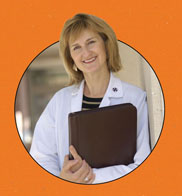
A few years ago, this Hopkins nurse autonomy got into people’s blood—literally—when Marian Grant was working at Johns Hopkins Hospital as a new ER nurse. “When we were drawing blood, sometimes the way we were doing it was causing hemolysis, where the blood cells get broken up,” Grant recalls. “That skews the results and the lab says, ‘I can’t use this sample.’ And that drove me crazy. So we did research, and we figured out that some ways were better than others for drawing blood.” Grant’s research was published in 2003 in the Journal of Emergency Nursing. “Coming out of Hopkins, only a year out of my undergrad program, I felt, ‘Well, here is a problem and let’s do research to resolve it.’”
George Dover has worked with Hopkins nurses since the day he started his internship at Johns Hopkins three decades ago. Today Director of the Department of Pediatrics at the School of Medicine, and Pediatrician-in-Chief of the Hopkins Children’s Center, Dover says he has been continually impressed by the autonomy they’ve shown..
“There are programs where Hopkins nurses have gone out in the East Baltimore community and started their own clinics,” he says. “We have one near our Perkins Daycare Center called the Lillian Wald [Center] that has been staffed by Hopkins nurses for years.”
He continues, “I travel to a lot of different places, and I think the nurses here have a much stronger clinical role than they do elsewhere. At least in pediatrics, basically what’s happened over the last 30 years is the patients whom we admit have become sicker, and we have more therapeutic options for them. And because of this, I think we depend on nurses more today than we used to, as clinicians, and I think that they have adapted in an incredible variety of ways to the types of therapeutic care.”
This focus on clinical care is what’s most important to Mari Moriarty, from the Visiting Nurse Service of New York, when she recruits BSN graduates from across the country who are interested in providing care for patients in their homes. “If I could fill the whole program up with Johns Hopkins applicants,” she says, “I’d be very happy.” Moriarty finds Hopkins recruits different because “many of the students have had experience in AmeriCorps, or the Peace Corps, or Teach For America, and the curriculum at Johns Hopkins is rich in community health experience.” Moriarty now has four Hopkins nursing grads working in her BSN Internship program, and says she’s gotten “tremendously positive” feedback from their supervisors. “Anyone who comes into contact with them only has great things to say. They’re trained very well in clinical skills, but also have the confidence to go into the community and look at the patient as a whole—the patient interacting at home, with or without help from the family … All of the staff feel they bring a real enthusiasm for public health nursing, which a lot of other curriculums lack.” While other nursing schools focus mainly on clinical training inside the hospital, says Moriarty, Hopkins equips nurses to “develop opportunities for themselves anywhere,” she says. “It doesn’t have to be in a hospital setting.”
“And intellectually,” Moriarty adds, “[the Hopkins nurses] like to be challenged…they’re not content to just report to work and have the same routine day in day out. They don’t look at nursing as just skills, but what it should be: a really complex job.”
A Hopkins Nurse Has Unlimited Opportunities for Growth
Nursing, in all of its manifestations, is arguably one of the most challenging professions out there. But as alumni will attest, Hopkins nurses are often offered leadership opportunities that extend beyond the clinical walls.
Take Nancy McKelvey, who graduated from the Hopkins nursing diploma program in 1964. Today, as Chief Nurse and Lead for Healthcare Partnerships at the American Red Cross, she guides the involvement of some 30,000 paid and volunteer nurses across the United States.
“For about the past eight or nine years,” she says, “I’ve had Hopkins students mostly from the graduate programs, and some undergrad alumni as well, who have come to the Red Cross and worked with me on their clinical. And I’m very impressed with their widespread backgrounds, their interesting and varied perspectives. They stimulate me with their questions, and they question the status quo.”
In her own experience as a Hopkins-prepared nurse, McKelvey has found that “people are always impressed by the fact that you have gone there.” She adds, “When I went on for my baccalaureate degree, I myself saw that [the Hopkins] diploma program was different from many other programs, in that we had a much broader background. We had university English and other college courses, and that was very unusual for diploma programs.”
“I think there was a standard, an expectation, that you would be something special, you know? It was more than just doing your best.” (Read more about Nancy McKelvey on p. 52.)
Or take Linda Tarr-Whelan, who was Deputy Assistant to President Jimmy Carter, U.S. Ambassador to the UN Commission on the Status of Women under Bill Clinton, and now runs her own lobbying firm. Like McKelvey, Tarr-Whelan got her start in the Hopkins nursing diploma program. She chose Hopkins because “it was absolutely the best in the country. For those of us who came directly out of high school, this was the best education for nursing around.” And her high expectations were fulfilled. She particularly recalls how inspiring her teachers were. “My instructors were phenomenal,” she says. “They were great role models, strong women, they saw nursing as a partner profession to medicine, not like we were handmaidens to doctors, which at the time was how most people thought.”
“We were from the very beginning at Hopkins, as students there, very proud to be a Hopkins nurse. … and I certainly went to work for people who thought that way.” Recalls Tarr-Whelan, “After graduating from Hopkins, I went to work for a doctor in Illinois. He had hired me sight unseen because he said, ‘Well, if she’s a Hopkins nurse, then I want her in my office.’”
A Hopkins Nurse Goes the Extra Mile for Patients
When reminiscing about her time at the Hopkins School of Nursing, Tarr-Whelan’s most vivid memories were of her patients. “One of my most memorable patients was a little three-year-old boy right from East Baltimore. He had been terribly burned when a gas heater in the house had fallen over on him. And he was so brave. He did end up leaving the hospital, and in those days, most burn patients didn’t make it. He always tried to smile, and always made us smile.”
Tarr-Whelan’s dedication to her patients is not unique. Karen Haller says it’s a quality that’s constant in all Hopkins nurses. She recalls a recent incident with a patient named Jesse, who telephoned a nurse to tell her that he would always remember her because she had saved his legs.
“His voicemail got pushed to my desk,” Haller says. “This is a patient who was paraplegic from a bullet wound, a young guy, who was going to lose his legs. Two other institutions had told him they couldn’t save his legs. But this nurse worked with him, and with a podiatrist here, and they successfully prevented the amputations. This is a case where the patient isn’t one of our major donors, isn’t wealthier than the others—this nurse just went the extra mile. She saw possibilities that physicians didn’t see. She believed he would follow through on the plan, and he did. She’s a good example of the extra mile the Hopkins nurse goes.”
A Hopkins Nurse Has a Passion for Learning and for Sharing Knowledge
“The name Hopkins to me, first of all, says excellence in scholarship,” says R. Kevin Mallinson, an assistant professor of nursing at Georgetown University, who earned his MSN at Hopkins in 1997 and went on for his PhD in 2001. “I got an excellent education there. [Hopkins] has great scholarship and great resources, excellent libraries, and a tremendous hospital medical system that [puts] your study at a completely different level than a lot of other schools. The success of its graduates is a way of looking at that. I just got a $1.5 million grant [last] summer to do HIV nursing in three African countries. I don’t think I would have gotten that if I hadn’t been so well educated in scholarly work.”
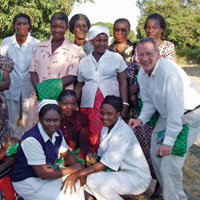
Mallinson started his career as a firefighter in Florida. “And after almost five years of firefighting, I decided I actually liked people more than I liked buildings so I went back to school and became a nurse.” At that time, the AIDS epidemic was just starting to receive national attention, and after getting his baccalaureate degree in nursing from the University of Miami, Mallinson decided to focus his work in AIDS units, first in California, and then at Johns Hopkins. “And that’s when I first got interested in pursuing an advanced degree, because of a couple of professors in the School of Nursing who were doing research studies. I had never heard of a nurse researcher before and I thought, ‘Wow, isn’t that a fascinating idea.’” Mallinson chose the Hopkins master’s program because it offered a specialty in HIV/AIDS.
“When I was doing my master’s I was in a course on the pathophysiology of AIDS that was taught by Lynn Baxendale-Cox. She has since passed away, but she was wonderful. Here I was taking a course from somebody who had her PhD, which was very impressive to me. She was an expert in pathophysiology, but she was not an expert in clinical care of people with AIDS. She knew the cellular problems, but she didn’t know the patient in front of you. I did, because I was working in the AIDS unit. And one of my favorite things about her, she was able to say, ‘Kevin, what does that look like when a patient has pneumocystis carinii pneumonia?’ That was her ability to say that she didn’t know everything, and I felt like a colleague in working with her. I think that at Hopkins there was a collegial respect for people who had a different knowledge base.”
Mallinson also remembers a mutual respect among students. “We weren’t in competition with each other. I wasn’t trying to beat out the other PhD students to win. I know that at a lot of other schools they pit one student against another. When I got surveys together for my dissertation, three of my colleagues helped me put the mail packets together, put the postage on, get them down to the post office; they certainly didn’t have to do that. And when I defended my dissertation, there were about 80 people in the room listening. I have since been at other schools where no one else is in the room except the committee. Defending your PhD should be a really important event. At Hopkins I was so pleased that they would open it up.”
Michael Relf, who also earned his PhD at the Johns Hopkins University School of Nursing, is now one of Mallinson’s colleagues at Georgetown. He is Chair of the Department of Nursing. Relf, who also specializes in AIDS research, chose Hopkins because of its reputation for scholarly excellence, but remembers it for the camaraderie he felt with his fellow classmates. “When I was going to start my doctoral program in 1994,” he says, “there were really only about three programs in the country that had a reputation of excellence and faculty doing HIV-related research. And I wanted a PhD that was really a research doctorate—one that would prepare me to do specialty research. I chose Hopkins because the School of Nursing also has a profound set of other resources—the School of Public Health, and the School of Medicine—that were critical to my doctoral research.”
“All of the doctoral students at that time were in an advanced statistics course called Multivariate Methods. And all of us were treading water to understand the material. So we had study group every Saturday or Sunday for three or four hours, and what I remember most is really the team spirit, that everybody came together. There were 13 of us in the class, and all 13 did this study group. Thirteen brains working together to figure out what we were expected to learn. We all walked away better because we were thinking out loud, together, about very complex material. As doctoral students, we were there to challenge one another, but also to support and encourage one another.”
A Hopkins Nurse Has a Passion for Excellence
What does it mean to be a Hopkins nurse? “Well just the name brings instant recognition as being number one,” says JoAnn Coleman, who earned her post-master’s CRNP at Hopkins in 1995, and is now an acute care nurse practitioner for surgical oncology at Johns Hopkins Hospital. “If you go to different venues or meetings, and are asked where you’re from and you say Hopkins, it’s like, ‘Oh you’re from Hopkins.’”
“One time I was in Pittsburgh, PA visiting [Tom] Starzl, the [surgeon] who performed the first human liver transplant when Hopkins Hospital was first instituting a liver transplant program. When he and his team learned we were from Johns Hopkins Hospital, they said, ‘Oh! Do you work in surgery? Do you know Dr. Cameron? Oh well, then you must know the Cameron procedures.’ Which, of course, we don’t call them that, but that’s what they’re known as in Pittsburgh. That hit me. As a Hopkins nurse, you get recognized, and not only by people you work with, but outside the hospital as well.”
“When people hear you’re from Hopkins, I think they assume that you know what you’re talking about. And that you’ve had this great training. It’s true; if you don’t know where to go or who to ask, you have this incredible resource of people. I don’t need to go to the library or look things up—our surgeons write the papers.”
Elaine Neely Schelle, who graduated from the Hopkins diploma program in 1959 and has worked in Baltimore schools, clinics, and hospitals ever since, has had a similar experience. “The medical community, the guys that I worked with, they quickly got a good feeling for the fact that I and others, my peers, had a very good scientific foundation. We had a very special obligation for performance, and we all really took that to heart. And there was an expectation that you would do your very best at all times. These lessons that I learned at Hopkins have sustained me as a mother, a wife, and a professional.”
“But you know,” says Schelle carefully, “that reputation—it’s a fine line to walk. They say you can always tell a Hopkins nurse, but you can’t tell them much!”
Virginia Hughes, who earned her master’s degree in 2006 from the Johns Hopkins University Writing Seminars, is a science writer living in New York City.
 And the Winners Are…
And the Winners Are… Hill's Side
Hill's Side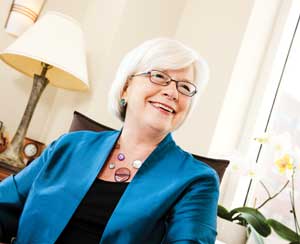 Dean Hill to Step Down in 2013
Dean Hill to Step Down in 2013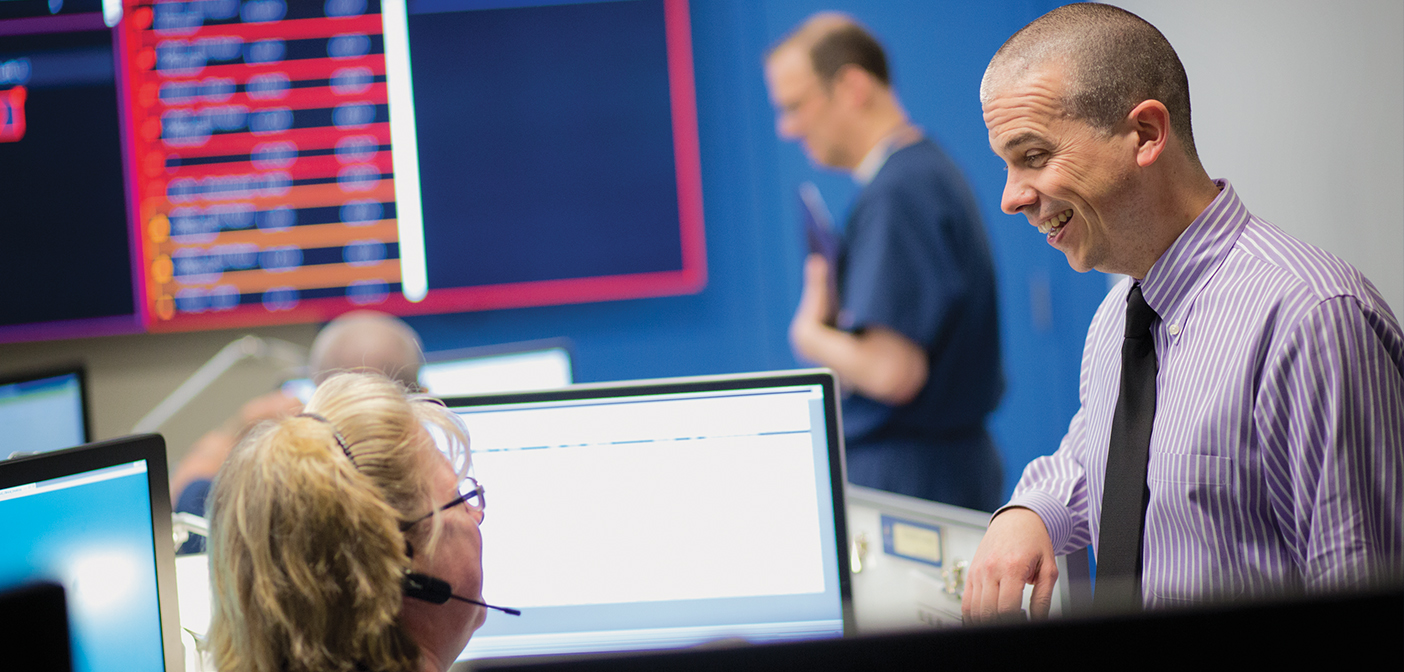 Front and Center
Front and Center







